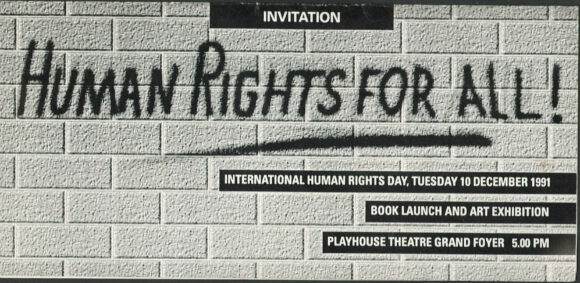
An exhibition about 30 years of democracy can currently be viewed in Special Collections at the Library. UNICEF defines human rights as “standards that recognize and protect the dignity of all human beings.” In South Africa, Human Rights Day is a National Public Holiday that is historically linked to the Sharpeville massacre of 21 March 1960.
The commemoration of the day serves as a reminder of the sacrifices that people made and the gains that came with achieving democracy. Although the country continues to be confronted with inequalities resulting from weak governance, uneven wealth distribution, unemployment, poverty, and others; the existence of human rights should inspire citizens to continually strive for the betterment of our country and its people. By enshrining human rights in the constitution, the country affirms how it values human dignity, equality, and freedom.
This year, thirty years into democracy, it is time for South Africans to remember that the democracy we are celebrating began when the country’s political landscape shifted in the 90s, resulting in the first democratic elections in 1994. Part of celebrating this milestone should be our continuous commitment to uphold, protect and advance democracy and human rights.
Special Collections has some collections that cover themes on human rights and democracy in South Africa. You can visit collections such as Frederik van Zyl Slabbert Collection, Edwin Cameron Collection, IDASA Collection , Noseweek, South African Elections and Vrye Weekblad.
For more information on the material in Special Collections, visit our library guide.
Author: Pakama Ncume
Leave a Reply